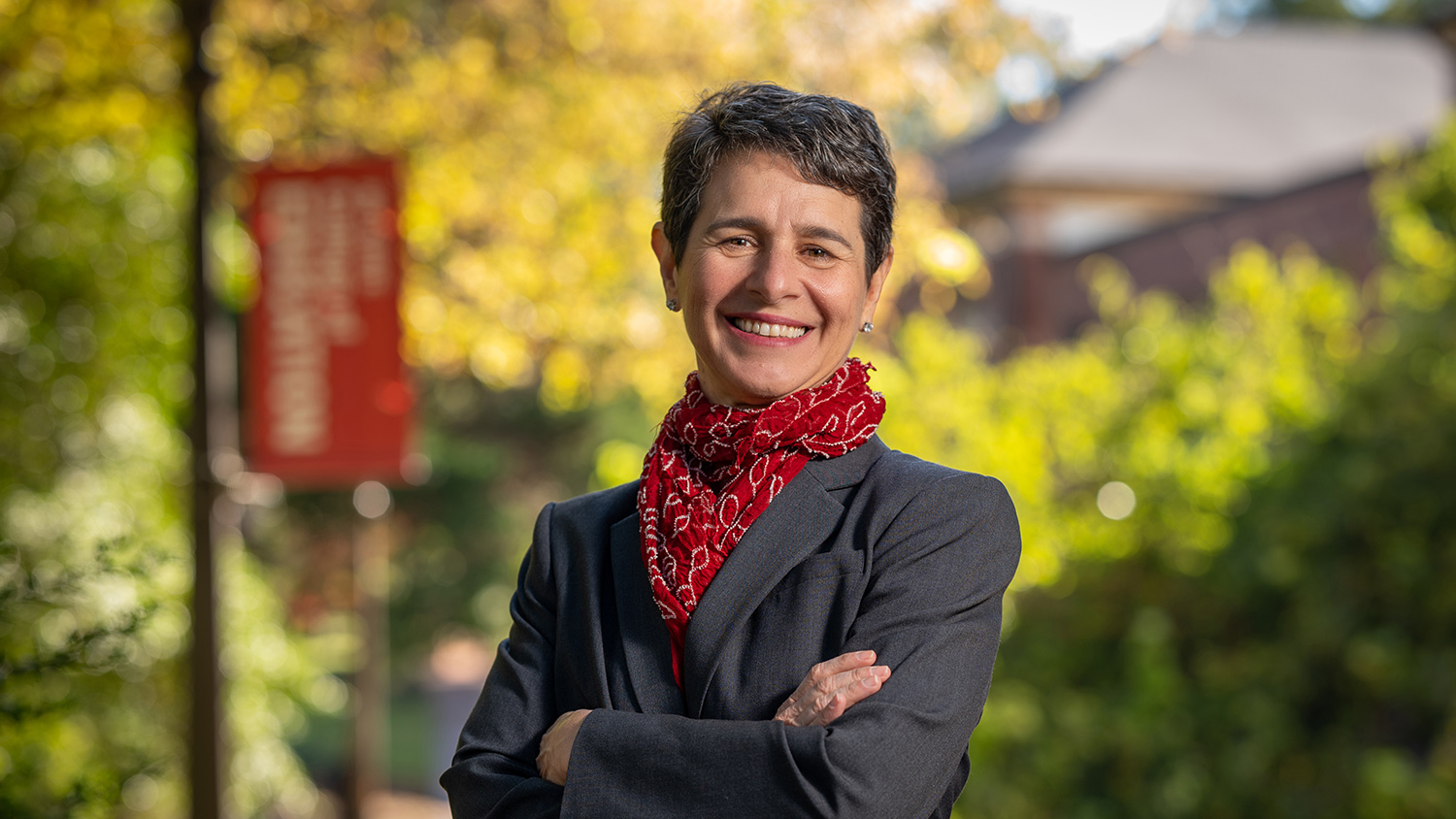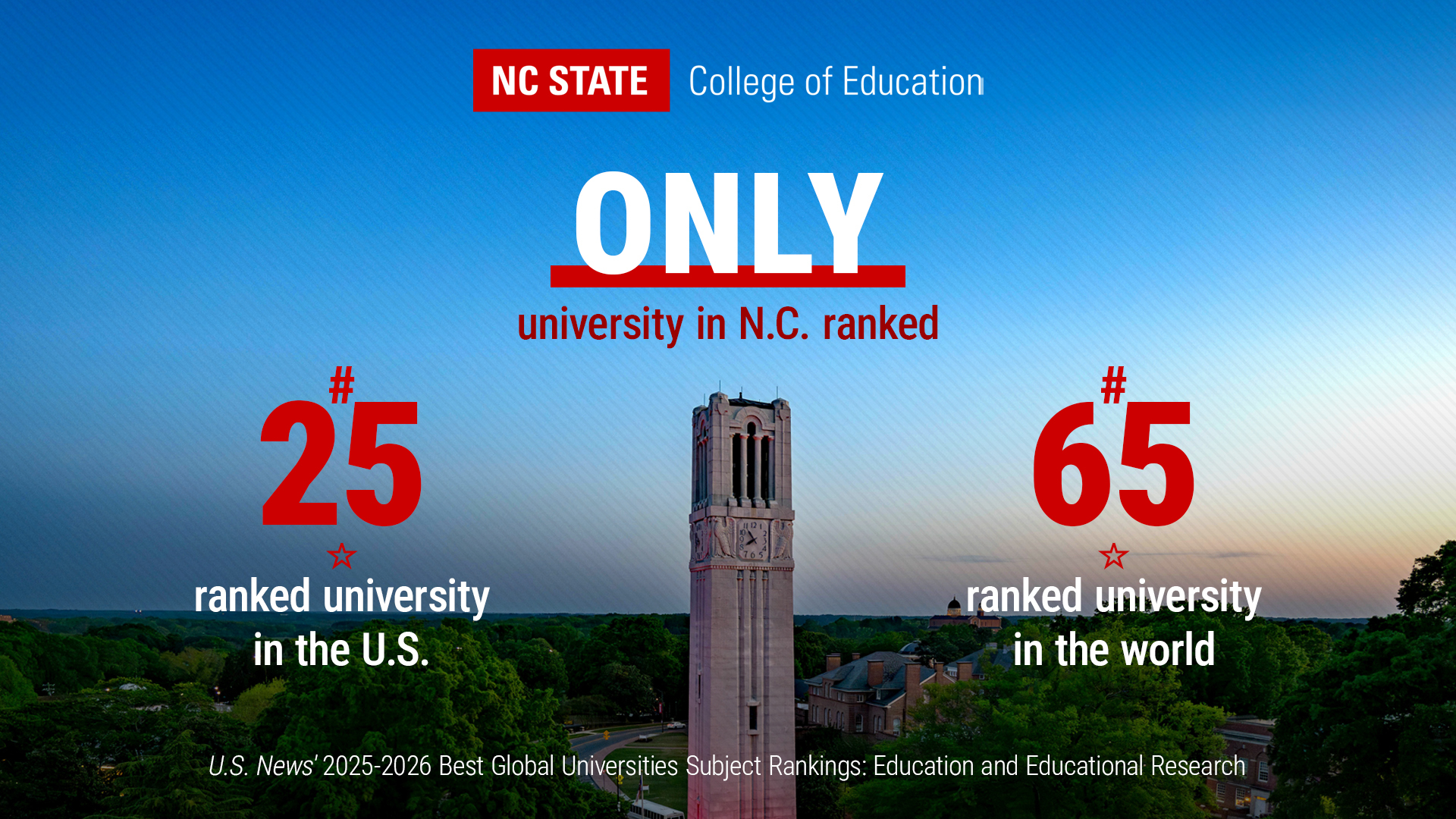With $3.4 Million Grant, Dean Paola Sztajn Expands Project AIM Professional Development to Support Coaches, Principals and Strengthen Focus on Equity

For the past decade, NC State College of Education Dean Paola Sztajn has helped elementary school teachers improve their mathematics teaching practices through Project AIM (All Included in Mathematics). Now, she is expanding the program to better support school leaders and instructional coaches and have a stronger impact on students.
Begun in 2010 with a grant from the National Science Foundation, the Project AIM professional development model helps elementary school teachers learn to promote mathematics discourse for all learners through strategies adapted from literacy instruction.
Across several implementations, teachers who participated in Project AIM demonstrated a better understanding of mathematics discourse, were better prepared to implement high-quality discourse and reported attending to various dimensions of discourse in their practice. Participants also significantly outperformed teachers who did not participate.
In partnership with Horizon Research, the five-year, $4,678,532 “Project AIM-NEXT: All Included in Mathematics New Extensions” project, will build on this prior work by strengthening the model for teachers by designing support for coaches and principals, and aims to measure the impact the professional development has on student outcomes. The College of Education will receive $3,384,532 of the total grant funding and Associate Professor Jill Grifenhagen and Executive Director of Leadership Innovation Fran Riddick will support the development of the coaching and principal supports, respectively.
“The principal component and the coaching component come from what we know about what supports teachers’ growth. Coaching is a professional development approach that has been shown to impact teachers and, of course, we know how important principals are for teachers to be able to do what they need to do,” Sztajn said. “Our hypothesis is that, if we strengthen the intervention on and support for teachers, and if we better measure the results on students, we are going to hopefully find impacts of the professional development at the student level.”
Sztajn added that demonstrating the impact of professional development all the way to the level of student learning is a complex problem that this project is trying to address.
In its initial implementation, Project AIM placed a particular focus on using discussion techniques with multilingual and emergent bilingual students, who may often be more reluctant to participate in classroom discussions even when they understand the mathematical concepts.
Project AIM-NEXT, Sztajn said, will expand the focus on equity with a component that focuses on equity-related noticing.
Noticing refers to an educator’s ability to notice, in the moment, what is happening in the classroom, make sense of what is happening and act upon it. Typically, the idea of noticing has focused on content-related noticing or noticing students’ mathematics, but Project AIM-NEXT will instead help educators notice when things that are happening in their classroom might not be equitable.
“For example, if different groups of students are participating in different ways, the teacher may need to address that or, if a student is not feeling included, a teacher may need to think about ways to bring that student in.,” she said. “Research has shown that teachers who have equitable practices do pay attention to these issues. So, we are hoping to help our teachers also attend to this, particularly during the coaching part of the program.”
The new iteration of Project AIM will begin with a local school, where the project team will work to pilot and refine the additional components. The second round will include a partnership with about 30 schools across the country, half of which will receive professional development using the original Project AIM model and half of which will receive professional development through Project AIM-NEXT.
The ability to take the professional development model nationwide has already been put into place for any districts who might be interested in utilizing Project AIM, which Sztajn said is one achievement over the past 10 years of the project that she is particularly proud of.
Sztajn and the project team have created a fully online, self-paced facilitator preparation program that allows a coach or mathematics leader within a school or district to become certified to offer Project AIM. The facilitator will then gain access to the Project AIM learning management system and can receive support from the project team as needed.
This model, Sztajn said, enables the project to expand nationwide while also allowing participating teachers to engage with colleagues in their own schools and districts as they implement the practices they learn.
“When teachers come to a professional development with their peers, there is a better chance that they will be able to implement the ideas they learn,” she said. “We have found a way to go national and remain local and that is something that I’m very proud of.”
As she embarks on this new research project, Sztajn said that there is one question that she has received more than any other: “How will you make time for this work now that you are the dean?”
For that, she credits the partnership with Horizon Research as well as the members of the research team she is putting together in the College of Education.
“It’s kind of exciting to keep a little bit of my researcher identity even as I embark on this journey of being the dean. I will need a great team, but we have great people here at NC State and the National Science Foundation allowed me to modify my budget to reduce my time and hire additional support,” she said.
- Categories:


